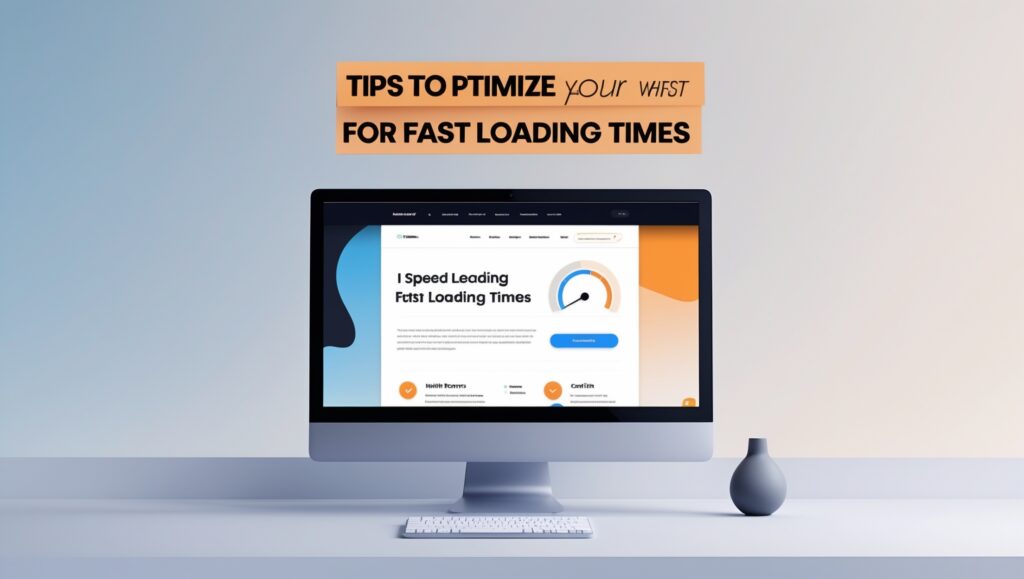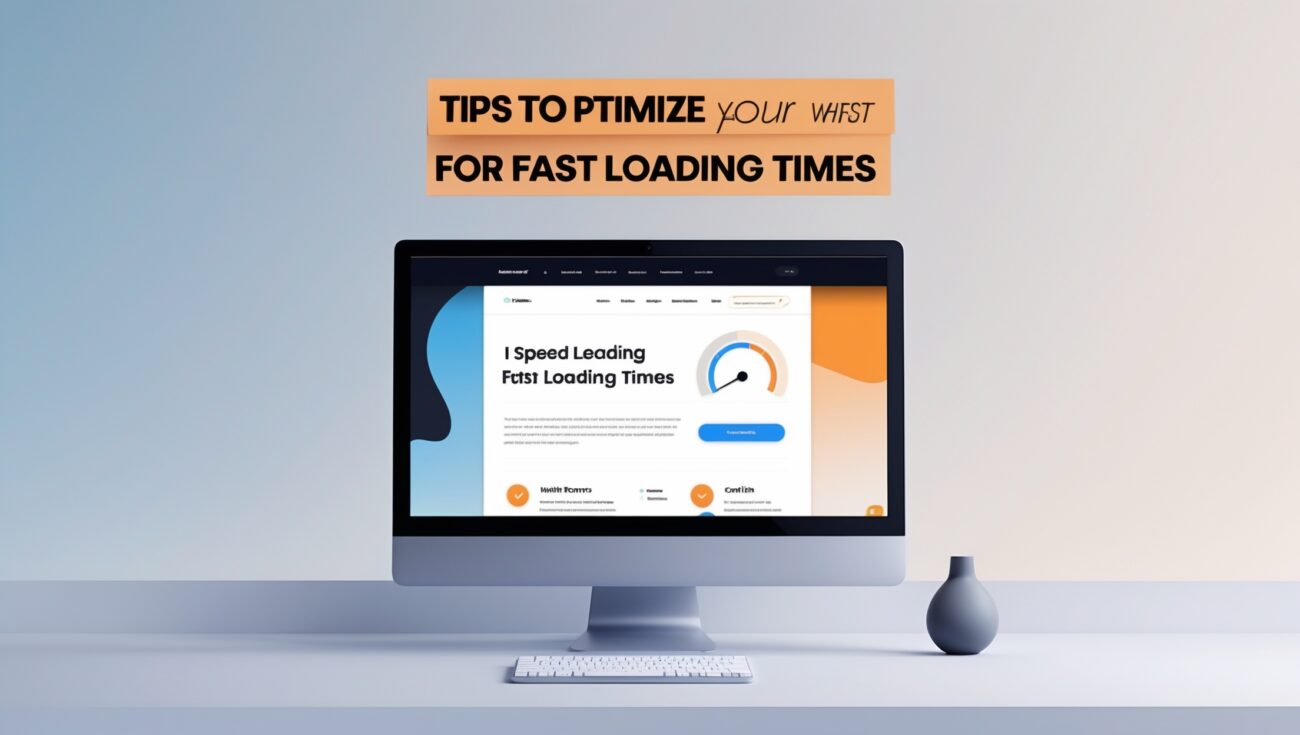Tips to Optimize Your Website for Fast Loading Times
When I first started building websites, I didn’t realize how much slow loading times could hurt user experience, SEO, and conversions. Visitors leave if pages take too long to load, and search engines notice too. Over time, I discovered that the right hosting and optimization strategies make all the difference.
In this guide, I’ll share my tips to optimize your website for fast loading times, so you can keep visitors happy and boost your search engine rankings.
Speed up your website with SiteGround hosting

Table of Contents
Choose the Right Hosting
The first step in optimizing your site is selecting a hosting provider that prioritizes speed. I use SiteGround because their servers are optimized for performance and handle traffic efficiently, reducing load times.
Enable Caching
Caching stores frequently accessed content, allowing pages to load faster. I rely on SiteGround’s built-in caching, which improves speed without complicated setup.
Use a Content Delivery Network (CDN)
A CDN delivers content from servers closest to your visitors. I’ve noticed a big improvement in loading times when using SiteGround’s CDN integration, especially for international visitors.
Optimize Images
Large, uncompressed images slow down websites. I always compress images before uploading, and SiteGround’s hosting works seamlessly with optimization plugins to ensure pages load quickly.
Minify CSS, JavaScript, and HTML
Reducing file sizes helps pages load faster. I use SiteGround-compatible tools to minify code, removing unnecessary characters and whitespace without affecting functionality.
Limit Plugins
Too many plugins can slow a website. I only use essential plugins and rely on SiteGround’s managed WordPress hosting, which handles performance optimizations behind the scenes.
Enable GZIP Compression
GZIP compresses website files before sending them to browsers, reducing load time. SiteGround supports GZIP, making it simple to enable this feature for all my sites.
Optimize Database
For dynamic websites, database performance is key. SiteGround optimizes databases, ensuring content loads quickly even during heavy traffic.
Mobile Optimization
Mobile users are a huge part of website traffic. SiteGround ensures mobile pages load fast, which improves both user experience and SEO rankings.
Reduce Redirects
Too many redirects slow page load. I’ve minimized unnecessary redirects and rely on SiteGround’s hosting to handle redirects efficiently without affecting speed.
Use Lightweight Themes
Themes with excessive features can slow down websites. I choose lightweight themes, and SiteGround’s servers ensure they run efficiently.
Monitor Performance
Regular monitoring helps catch issues early. SiteGround provides tools to track uptime and loading speed, allowing me to address problems before they affect visitors.
Upgrade Hosting When Needed
If traffic grows, upgrading hosting can prevent slowdowns. SiteGround allows me to easily scale from shared hosting to VPS or cloud hosting as needed.
Avoid Hotlinking
Hotlinking images from other websites can slow pages. Hosting images on my SiteGround servers ensures faster load times and better control over performance.
Final Thoughts
Optimizing website loading times is about combining good hosting, smart tools, and best practices. With SiteGround, my websites load fast, stay secure, and provide the best experience for visitors, which keeps them coming back.
When I first started, I didn’t realize how much slow loading times could hurt my website. Visitors leave quickly, and Google notices. Switching to SiteGround made a huge difference in speed and reliability.
Website speed affects bounce rates. I noticed that faster pages keep visitors engaged longer, which improves session duration and reduces bounce—both important for SEO.
Caching has been a game-changer for me. SiteGround’s caching system stores frequently accessed content, which significantly reduces server load and speeds up page delivery.
Using a Content Delivery Network (CDN) has helped me serve content faster to visitors across the globe. SiteGround integrates easily with CDNs, making international access seamless.
Image optimization is essential. I always compress images and use WebP format where possible. SiteGround works well with plugins that automate this process without slowing the site.
Minifying CSS, JavaScript, and HTML is another key step. SiteGround supports tools that remove unnecessary characters, reducing file sizes and improving load times.
Limiting the number of plugins keeps my site lean. SiteGround’s managed hosting ensures essential plugins run efficiently without affecting speed.
Database optimization makes a huge difference. SiteGround automatically optimizes databases, ensuring pages load quickly even with high traffic or dynamic content.
Mobile performance is critical. With most visitors browsing on smartphones, SiteGround ensures my mobile pages load quickly, which boosts SEO and user satisfaction.
Reducing redirects prevents unnecessary delays. I audit my website regularly, and SiteGround’s servers handle the remaining redirects efficiently, keeping pages fast.
Lightweight themes are easier to load. I choose themes that are minimal yet functional, and SiteGround’s optimized servers make them perform even better.
GZIP compression is easy to enable and improves speed by compressing files before sending them to browsers. SiteGround supports this, which has noticeably improved my loading times.
Monitoring performance regularly has been a lifesaver. SiteGround’s tools allow me to track page speed, uptime, and server response times to address issues proactively.
Upgrading hosting as my traffic grows has prevented slowdowns. SiteGround makes it simple to move from shared to VPS or cloud hosting without disrupting visitors.
Finally, having a reliable hosting provider like SiteGround gives me peace of mind. My websites load fast, stay secure, and provide a great experience, keeping visitors happy and returning for more.
I’ve also learned that combining multiple optimization strategies works best. Hosting on SiteGround while optimizing images, caching, and minimizing plugins creates a faster, smoother website experience.
Regularly reviewing site analytics helps me identify slow-loading pages. SiteGround’s tools make it easy to pinpoint performance issues and fix them quickly.
Implementing lazy loading for images and videos has significantly improved page load times. SiteGround supports these features, ensuring content loads only when needed without slowing down the initial page load.
Third-party scripts can sometimes slow a website. I audit these scripts regularly, and SiteGround’s hosting environment handles necessary scripts efficiently without affecting speed.
Ultimately, investing in reliable hosting and optimization techniques ensures my website performs at its best. With SiteGround, I can focus on content creation while knowing my visitors enjoy fast, responsive pages.

